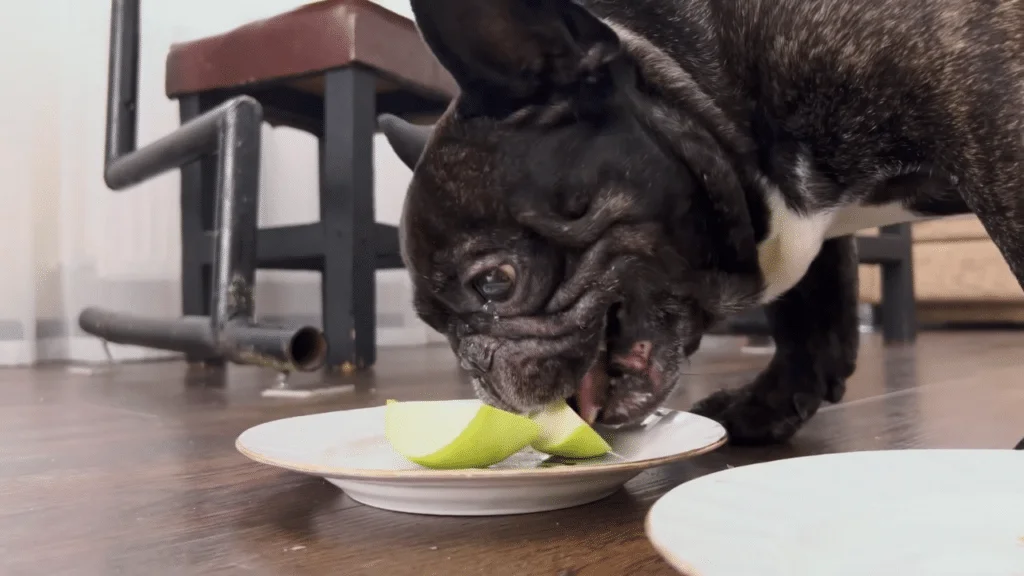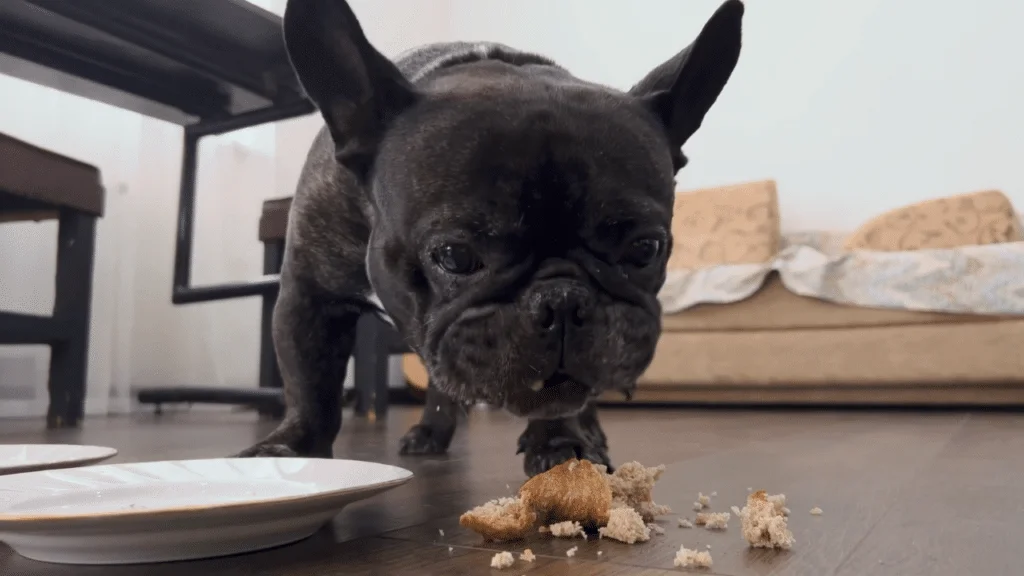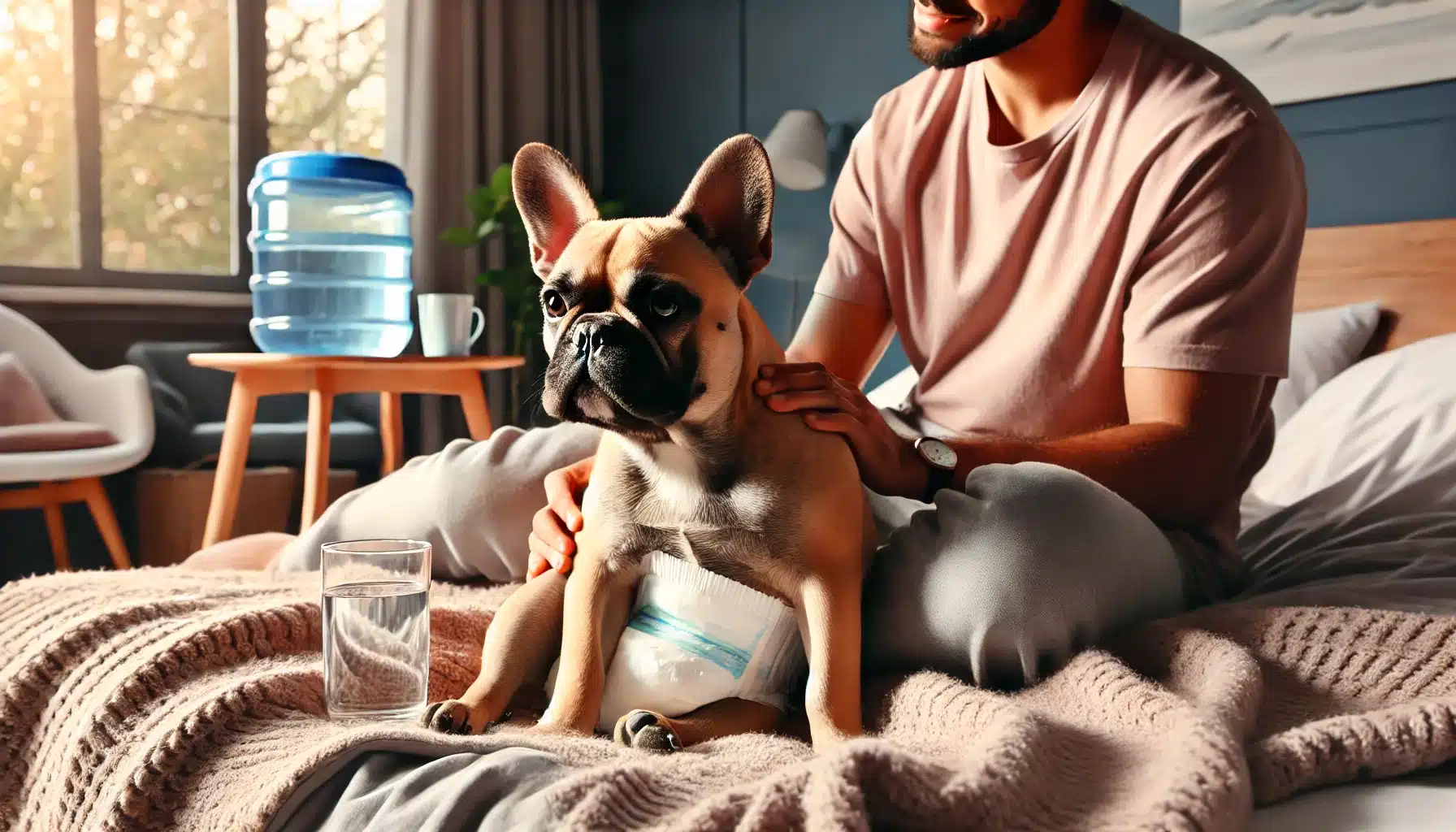French Bulldogs are a popular and beloved breed known for their playful personalities and distinctive looks. However, when it comes to their diet, French Bulldogs require special attention. Their unique physiology and common health issues mean that not all foods are suitable for them. This blog post will guide you through what French Bulldogs can eat, essential diet tips, and how to keep your furry friend healthy and happy.
Understanding the French Bulldog’s Dietary Needs
French Bulldogs have unique dietary needs due to their size, activity level, and genetic predisposition to certain health issues. Feeding them the right diet is crucial for their well-being.
- Small Size, Big Appetite: Despite their small stature, French Bulldogs can have big appetites. However, portion control is essential to prevent obesity.
- Sensitive Stomachs: French Bulldogs are prone to digestive issues, making it important to choose easily digestible foods.
- Allergy-Prone: Many French Bulldogs suffer from food allergies, so knowing what they can and cannot eat is vital.
Essential Nutrients for French Bulldogs
A balanced diet for French Bulldogs should include the following essential nutrients:
- Proteins: Necessary for muscle development and overall health.
- Fats: Provide energy and support skin and coat health.
- Carbohydrates: Offer a source of energy but should be given in moderation.
- Vitamins and Minerals: Vital for bone health, immune support, and overall well-being.
- Water: Always ensure your French Bulldog has access to fresh, clean water.
Do you Know When French Bulldogs Stop Growing? Find Out Here!
Safe Foods for French Bulldogs
Knowing what foods are safe for French Bulldogs is the first step in ensuring their health. Here are some of the best options:
Lean Meats
- Chicken: A great source of protein, as long as it’s cooked and unseasoned.
- Turkey: Another lean meat option, ideal for maintaining a healthy weight.
- Beef: High in protein and iron, but should be lean and cooked.

Fish
- Salmon: Rich in omega-3 fatty acids, which promote healthy skin and coat.
- Tuna: A good source of protein and omega-3s, but should be given in moderation.
Vegetables
- Carrots: Low in calories and high in fiber, making them a great snack.
- Green Beans: A good source of vitamins and minerals, plus they are low in calories.
- Sweet Potatoes: Rich in vitamins A and C, they support immune function and digestion.
Fruits
- Blueberries: Packed with antioxidants and vitamins.
- Apples: A good source of vitamins A and C, but make sure to remove the seeds.
- Bananas: High in potassium, which is good for muscle and nerve function.
Grains
- Brown Rice: Easily digestible and provides a steady source of energy.
- Oats: Good for digestion and a source of fiber.
- Quinoa: A high-protein grain that’s also rich in fiber.
Foods to Avoid
Not all foods are safe for French Bulldogs. Some common human foods can be toxic or harmful to them.
Chocolate
Chocolate contains theobromine, which is toxic to dogs. Even small amounts can cause vomiting, diarrhea, and potentially life-threatening conditions.
Grapes and Raisins
These fruits can cause kidney failure in dogs. Avoid giving your French Bulldog any grapes or raisins.
Onions and Garlic
Both onions and garlic can damage your dog’s red blood cells, leading to anemia. They should be avoided in all forms, including powders and cooked foods.
Do you know Why Your Frenchie Farts So Much and How to Help
Avocado
Avocados contain persin, which can cause vomiting and diarrhea in dogs. The pit is also a choking hazard.
Nuts
- Macadamia Nuts: Highly toxic to dogs, leading to weakness, vomiting, and tremors.
- Almonds and Walnuts: These can cause gastrointestinal distress and blockages.
Alcohol and Caffeine
Both alcohol and caffeine are dangerous to dogs and can lead to serious health issues, including death.

Special Diet Considerations for French Bulldogs
French Bulldogs may require special dietary considerations depending on their health and lifestyle.
Weight Management
French Bulldogs are prone to obesity, so managing their weight through diet is essential.
- Portion Control: Feed smaller, more frequent meals rather than large portions.
- Low-Calorie Treats: Opt for low-calorie snacks like carrots and green beans.
Allergies
Food allergies are common in French Bulldogs. Common allergens include beef, dairy, and wheat.
- Elimination Diet: Work with your vet to identify allergens by introducing foods one at a time.
- Hypoallergenic Diets: Consider commercial diets formulated for dogs with food sensitivities.
Dental Health
Dental issues are common in French Bulldogs due to their brachycephalic (short-nosed) structure.
- Dry Kibble: Helps to reduce plaque and tartar buildup.
- Dental Chews: Specially formulated chews can aid in maintaining dental health.
Age-Specific Diets
As French Bulldogs age, their dietary needs will change.
- Puppies: Require a diet high in protein and fat to support growth.
- Adults: Need a balanced diet to maintain energy levels and overall health.
- Seniors: May require lower-calorie diets to prevent weight gain and joint issues.
How to Transition Your French Bulldog to a New Diet
If you need to change your French Bulldog’s diet, do so gradually to avoid digestive upset.
- Step 1: Start by mixing 25% of the new food with 75% of the old food.
- Step 2: Gradually increase the proportion of the new food over 7-10 days.
- Step 3: Monitor your dog for any signs of digestive distress, such as vomiting or diarrhea.
Homemade vs. Commercial Dog Food
Both homemade and commercial dog food have their pros and cons.
Homemade Dog Food
- Pros: Control over ingredients, customization for allergies or sensitivities.
- Cons: Requires careful planning to ensure balanced nutrition; time-consuming.
Commercial Dog Food
- Pros: Convenient, formulated to meet nutritional standards.
- Cons: Some brands contain fillers or low-quality ingredients.
Conclusion: Keeping Your French Bulldog Healthy with the Right Diet
Feeding your French Bulldog a balanced diet is crucial for their health and longevity. By understanding their dietary needs, offering safe and nutritious foods, and avoiding harmful items, you can help ensure your French Bulldog leads a happy, healthy life. Always consult your veterinarian before making any significant changes to your dog’s diet, and pay attention to how your dog responds to new foods.
FAQs About French Bulldog Diet
1. Can French Bulldogs eat dairy products?
Yes, but with caution. Some French Bulldogs are lactose intolerant, so dairy should be given in small amounts. Opt for low-lactose options like plain yogurt or cheese.
2. How much should I feed my French Bulldog?
Portion sizes vary based on age, weight, and activity level. On average, adult French Bulldogs need about 1-2 cups of high-quality dog food per day, split into two meals.
3. Can I feed my French Bulldog raw food?
Yes, raw diets can be suitable for French Bulldogs, but they require careful planning to ensure balanced nutrition. Consult with your vet before starting a raw diet.
4. Are grain-free diets good for French Bulldogs?
Grain-free diets can be beneficial for dogs with certain allergies, but they aren’t necessary for all French Bulldogs. Always consult your vet before making dietary changes.
5. What should I do if my French Bulldog has food allergies?
Identify the allergens through an elimination diet or veterinary testing. Once identified, avoid those ingredients and consider a hypoallergenic diet or limited-ingredient dog food.
This comprehensive guide to what French Bulldogs can eat provides essential tips for feeding your pet safely and effectively. By following these guidelines, you can ensure your French Bulldog enjoys a healthy, balanced diet that meets their specific needs.







